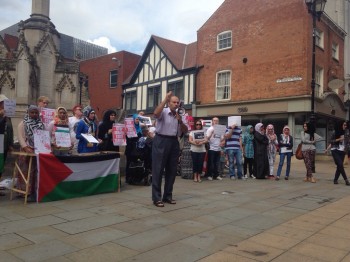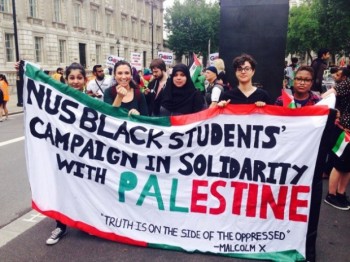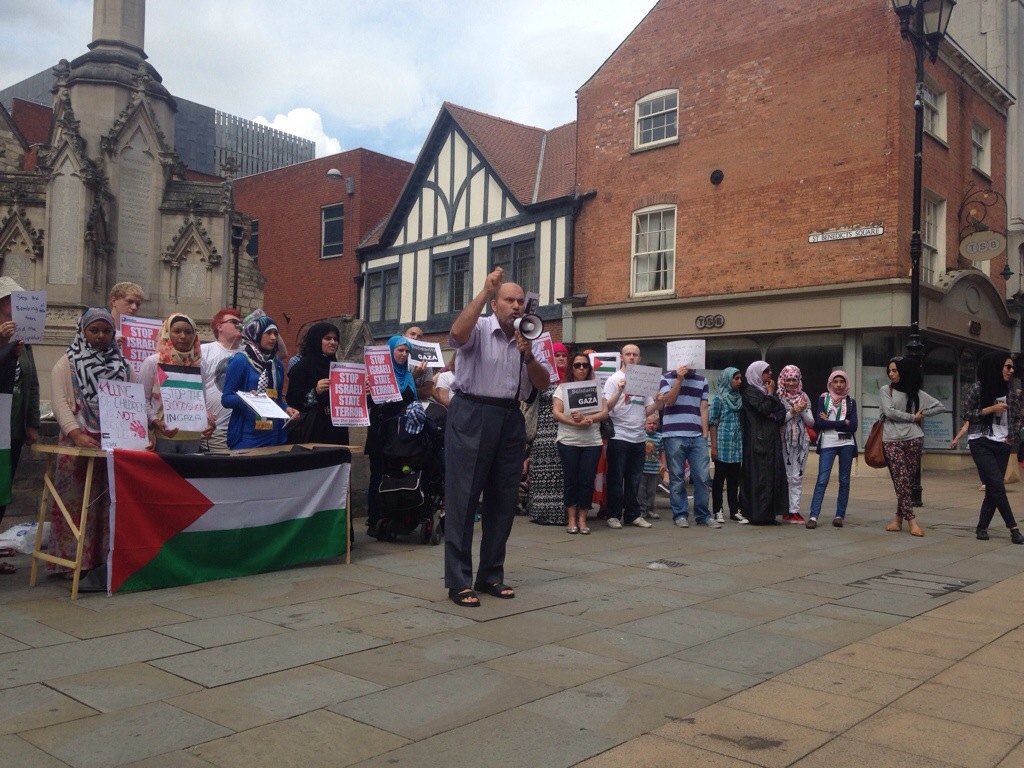Anyone who has watched, read, or listened to the news this summer will be painfully aware of the ongoing conflict between the Israeli government and Hamas in the Gaza Strip. At the time of writing, more than 2,000 Palestinians have been killed in the occupied territories of Gaza and the West Bank since the most recent round of conflict started in July.
It’s in this climate that there are plans for a Palestine Solidarity Society to be set up within the University of Lincoln Students’ Union. I spoke to Hishaam Ashraf, the Biomedical Science student who’s proposing the creation of a society, to ask what had inspired him to start it up.
“I think it’s well needed in Lincoln,” he tells me. “We’ve had so many requests from students, staff, and the public for some sort of organisation or society to be set up in order for people to support the people of Palestine.”
That support in Lincoln seems to be reflected nationally: a YouGov survey found that 30% of Brits now support the Palestinians – an all-time high throughout the conflict – compared to just 12% siding with the Israelis.

Hishaam thinks this is due to the introduction of social media in the Middle East. “Social media’s been a big platform for what we’re not seeing on mainstream media like the BBC,” he alleges. “That’s what really made me push for a society, I think, as well as informing people about what’s really going on and getting rid of any misconceptions.”
He’s kept busy over the summer too, working alongside the Lincoln Socialists on protests in the city. “We’ve had around two to three successful protests already, where there’s been a lot of people who want to sign up as members,” Hishaam, who is going into his second year, enthuses.
“We can’t do anything until we’re ratified [by the SU’s societies council] in October, but based on the interest we’ve seen at the protests I’m expecting to have around 60 to 70 members.”
The prospective society would also be involved in fundraising efforts towards aid for those living amongst the turmoil, as well as associating with the national and international Palestine Solidarity Campaign. “I’m currently in the process of emailing them with the hope of setting up a branch,” he explains. “There are branches in several areas of the UK, but Lincoln doesn’t currently have one. I’m hoping they’ll be able to help with materials, guest speakers, anything to do with campaigning.”
Not only are there branches in several areas of the UK, but also many on campuses across the country: across the Scottish border in Glasgow and Dundee and across the Irish Sea at Queen’s University Belfast, down to the north of England in Manchester and Sheffield, then southward at Essex, Bristol, and Greenwich.

They’ve also been joined by the National Union of Students, who implemented a BDS campaign (boycott, divestment, sanctions). While controversial, NUS Black Students’ Officer Malia Bouattia called it “progressive”, adding that “there is more work to be done.
“The past resistance of the NUS to support this campaign means that we will have to push for complete implementation. Moreover there are those within and outside of the student movement that still refuse to see the plight of the Palestinians for what it is.”
That’s also one of Hishaam’s major ambitions for the University of Lincoln. “I would back a boycott of Israeli goods, but I’m not so sure about academics. I think the best way is to hit them in the pocket, using non-violent, peaceful protest, as long as everyone knows what they’re standing for. That’s the best way.”
Finally, I ask him whether a PalSoc – as the group are calling themselves – would ever be brought to a close, when it would no longer be needed.
“When the war stops, when they’re given their land back,” he smiles.


Like you say we now need a lincoln branch of the Palestine solidarity campaign
[…] Student unions at Exeter, Keele, Brunel, Goldsmiths, Swansea, the School of Oriental and African Studies (SOAS), Birkbeck, and Kingston have already passed their own motions in favour of the BDS campaign. Groups at other universities are also campaigning for their SUs to join the movement, including here in Lincoln. […]